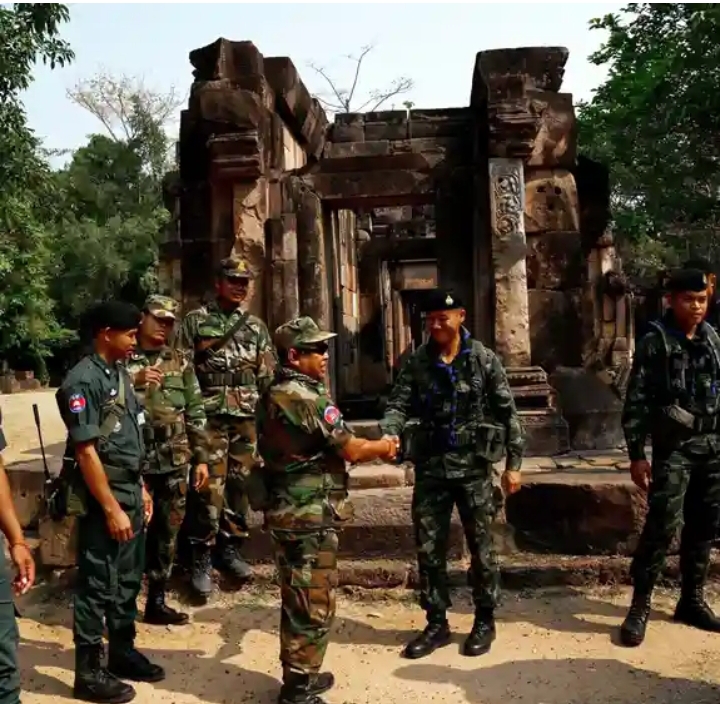Thailand closed border crossings with Cambodia after a deadly clash, heightening tensions amid a long-standing border dispute.
Thailand Closes Borders to Tourists Following Clash with Cambodia


On Saturday, Thailand took the precautionary step of closing two of its border crossings to tourists amid escalating tensions with neighboring Cambodia. This move comes as a safety measure in response to recent developments along their shared frontier.
The decision follows a deadly incident on May 28, when a Cambodian soldier was killed during a brief military clash in a region known as the Emerald Triangle, where the borders of Thailand, Cambodia, and Laos converge.
The two countries share an 817-kilometer (508-mile) border that was initially delineated by France in 1907 during the colonial period when Cambodia was under French rule. Throughout most of the 20th century, Thailand and Cambodia have had ongoing disputes concerning various un-demarcated sections of this boundary.
Authorities in Chanthaburi province, located in eastern Thailand, announced in an official statement that they had “temporarily suspended” crossings for both Thai and Cambodian tourists at two permanent border checkpoints as a direct consequence of the heightened tensions.
The Royal Thai Army cited concerns over threats to Thailand’s “sovereignty and security” as the primary justification for this closure. Despite these restrictions, the army assured that trade between the two nations would continue unaffected and that Cambodian workers would still be permitted entry into Thailand.
Additionally, six other border checkpoints implemented tightened operating hours and enforced bans on six-wheeled vehicles as precautionary measures to further secure the area.
Thai Defense Minister Phumtham Wechayachai, who also serves as deputy prime minister, explained that the Thai military had strengthened its presence along the border in response to a corresponding increase in Cambodian troops deployed nearby.
“There has been a reinforcement of military presence [by Cambodia], which has exacerbated tensions along the border,” Phumtham stated in an official communication.
He added, “Consequently, the Royal Thai Government has deemed it necessary to implement additional measures and to reinforce our military posture accordingly.”
On Friday, the army declared that it was prepared to undertake a “high-level operation” aimed at countering any infringement of Thailand’s sovereignty.
Meanwhile, the Thai Foreign Ministry confirmed on Saturday the country’s commitment to resolving the dispute through diplomatic means, announcing plans for bilateral talks with Cambodia scheduled for June 14.
Cambodian Prime Minister Hun Manet delivered a speech on Saturday reiterating his nation’s position, emphasizing that Cambodia’s stance was “not to initiate conflict, but to defend ourselves.”
Earlier in the week, Hun had announced that Cambodia intends to lodge a formal complaint with the International Court of Justice (ICJ) concerning the ongoing border dispute.
Following last month’s fatal incident, the two countries had agreed to ease tensions. However, Cambodia later declared it would maintain its troop presence in the contested area, defying requests from Bangkok to withdraw forces.
The border conflict dates back to 2008, initially erupting over an 11th-century Hindu temple and leading to sporadic outbreaks of violence over the years. To date, at least 28 people have lost their lives in these clashes.
In 2013, the ICJ ruled that the disputed territory belongs to Cambodia. However, Thailand does not recognize the ICJ’s jurisdiction on this matter and continues to seek a bilateral resolution to the conflict.
Both the Association of Southeast Asian Nations (ASEAN) and China have recently intervened, making efforts to ease tensions between the two neighbors.

 বাংলা
বাংলা  Spanish
Spanish  Arabic
Arabic  French
French  Chinese
Chinese 
